Olympic Games: A comprehensive track preview
The events and the favourites for 10 gold medals
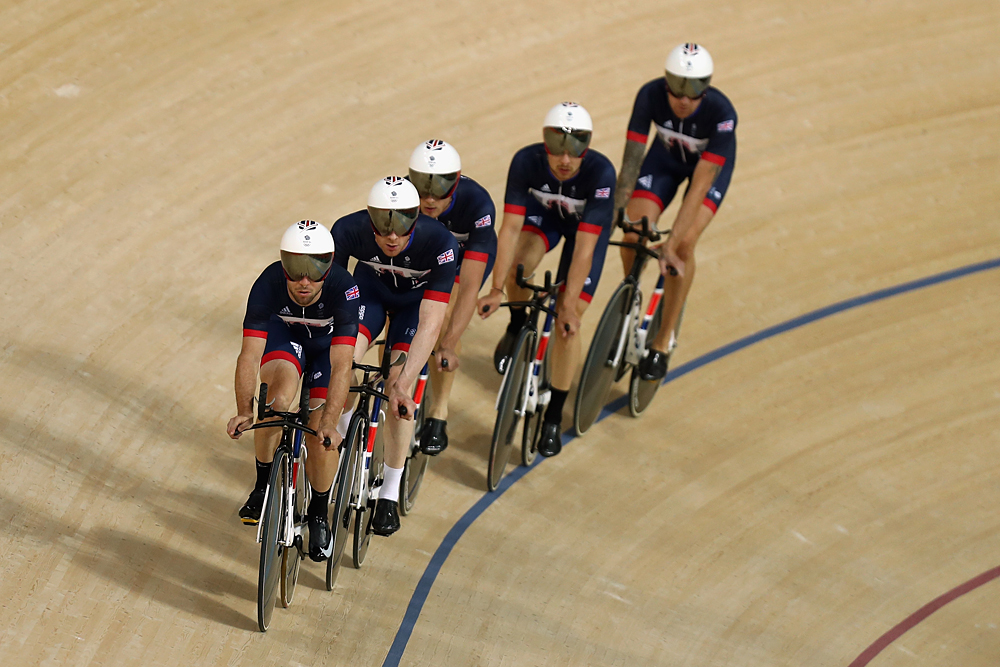
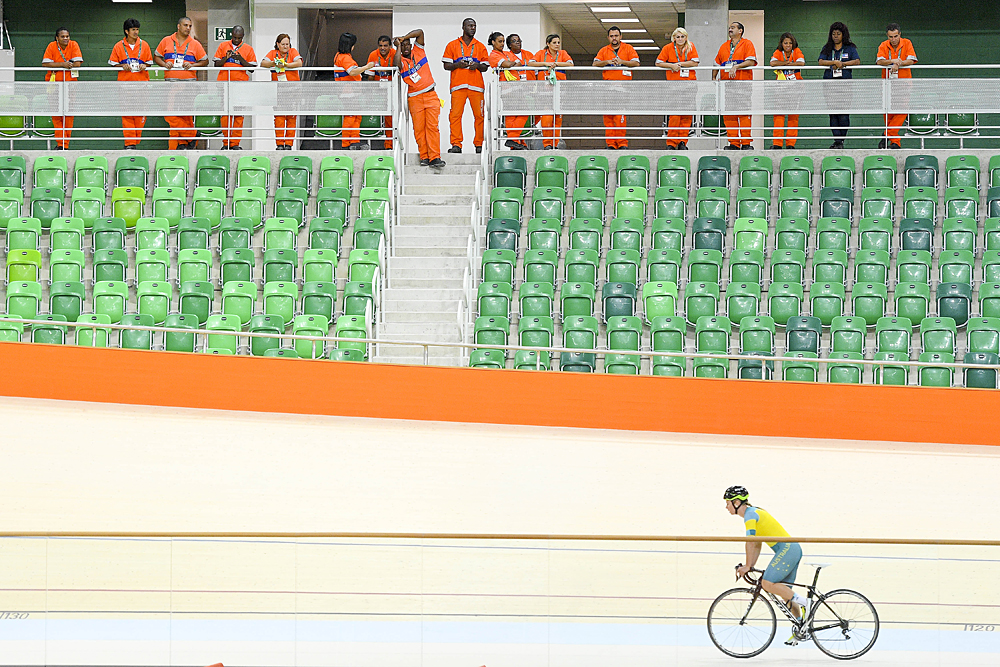
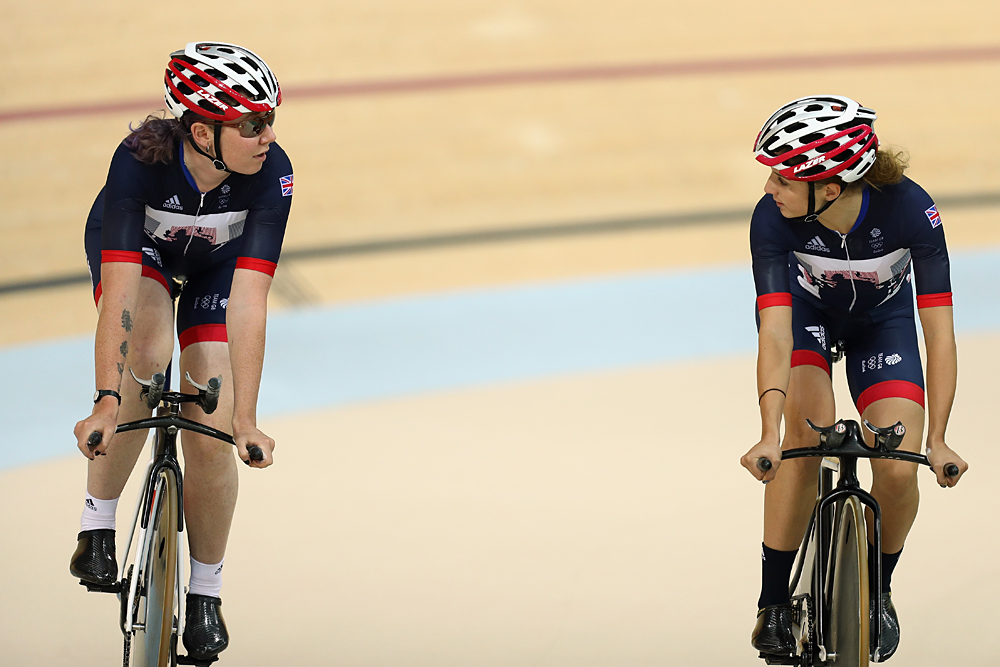
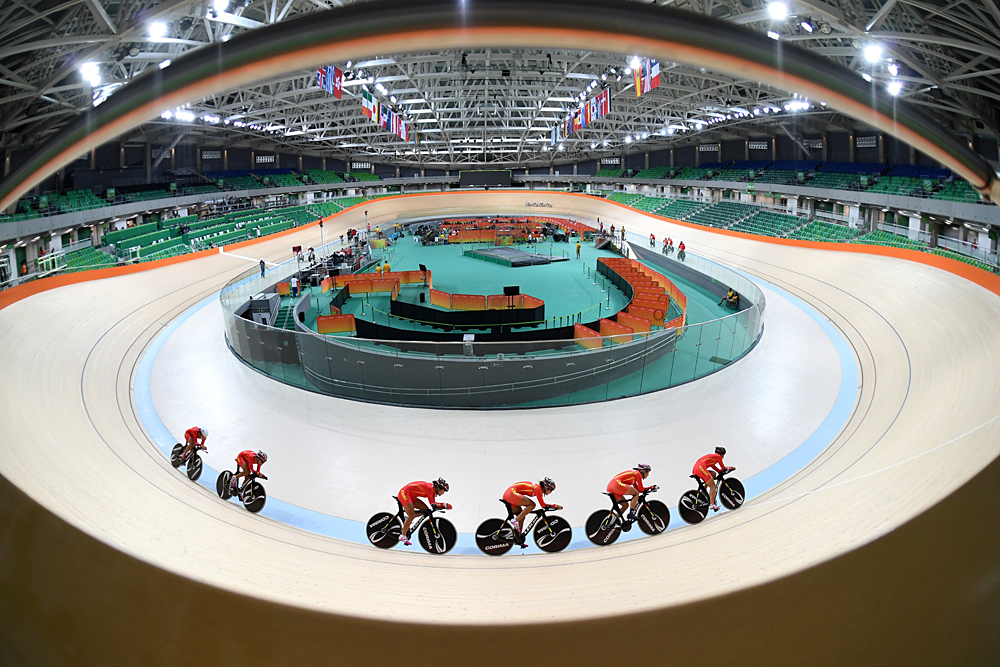
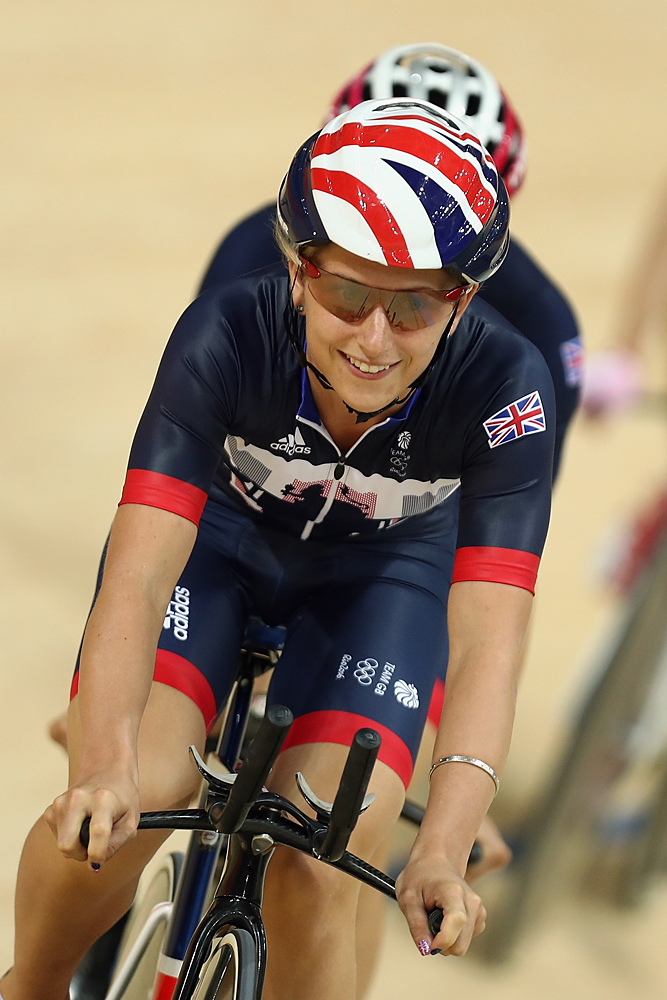
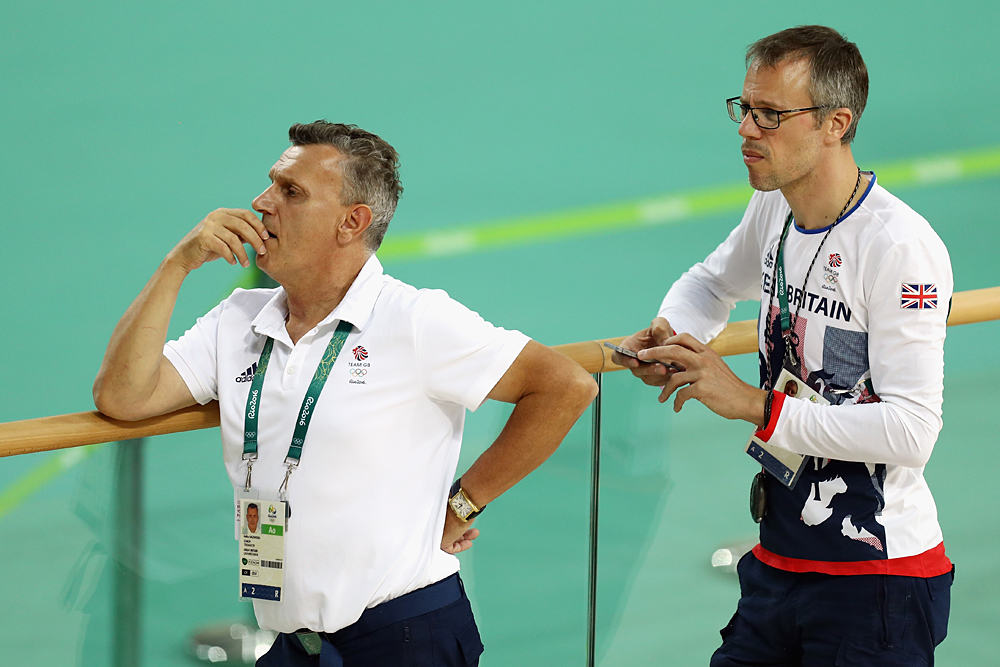
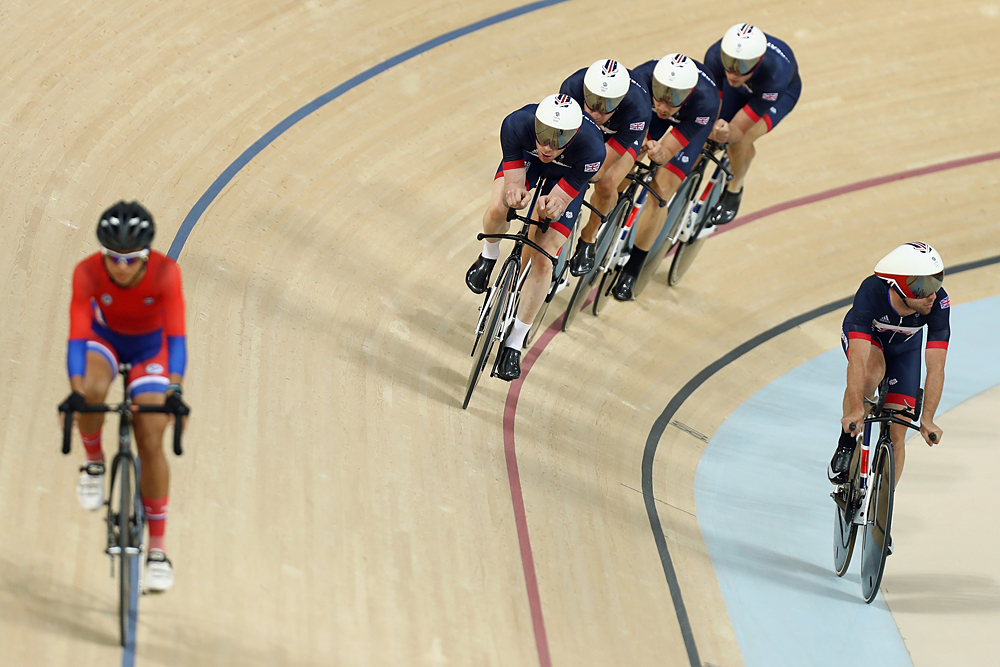
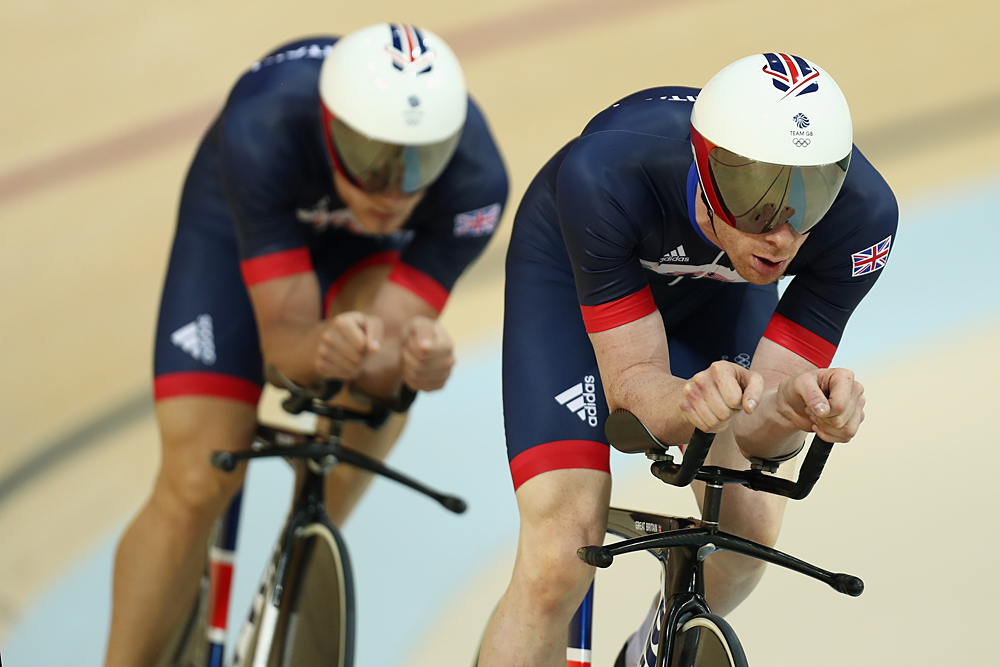
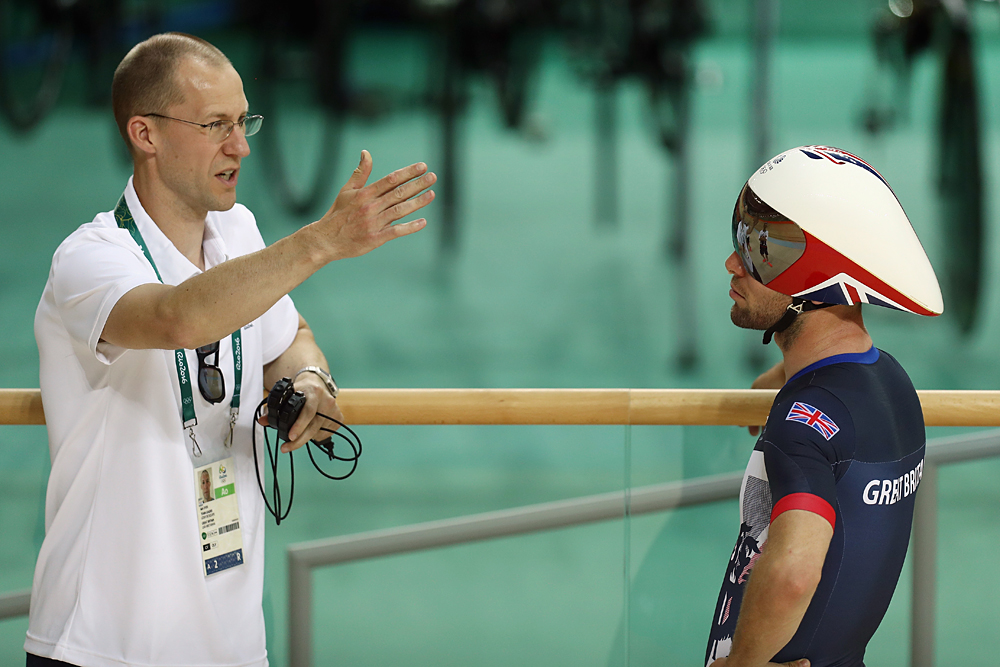
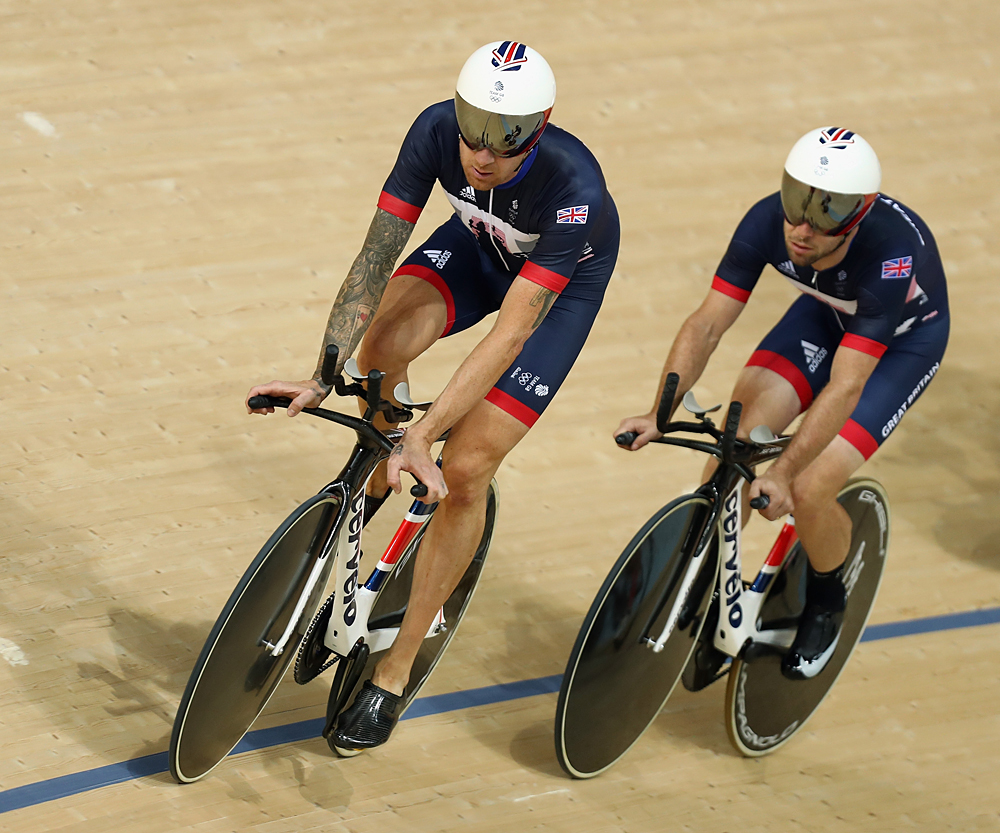
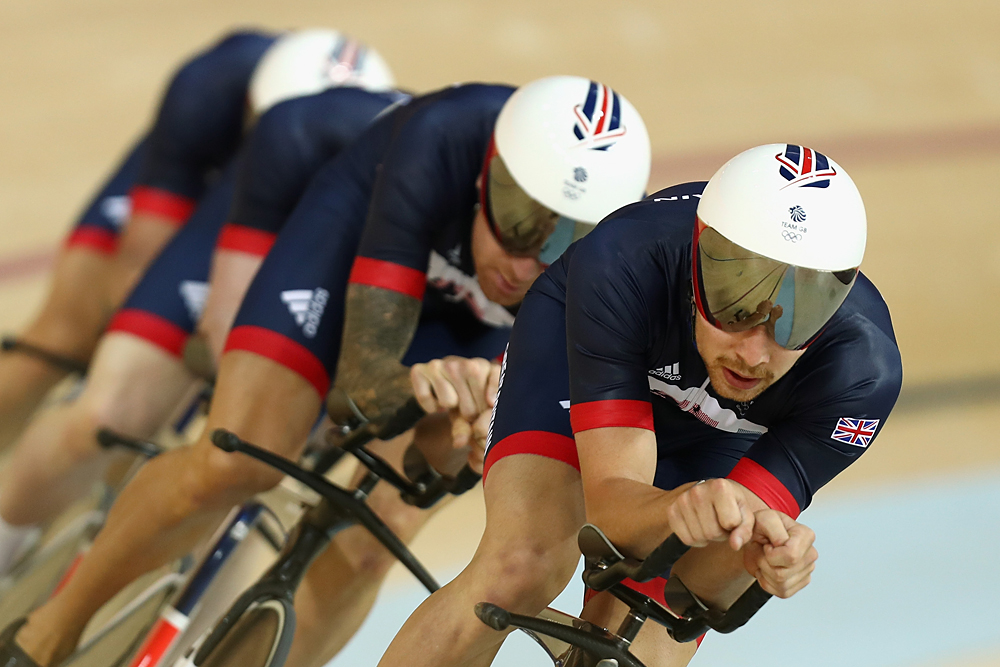
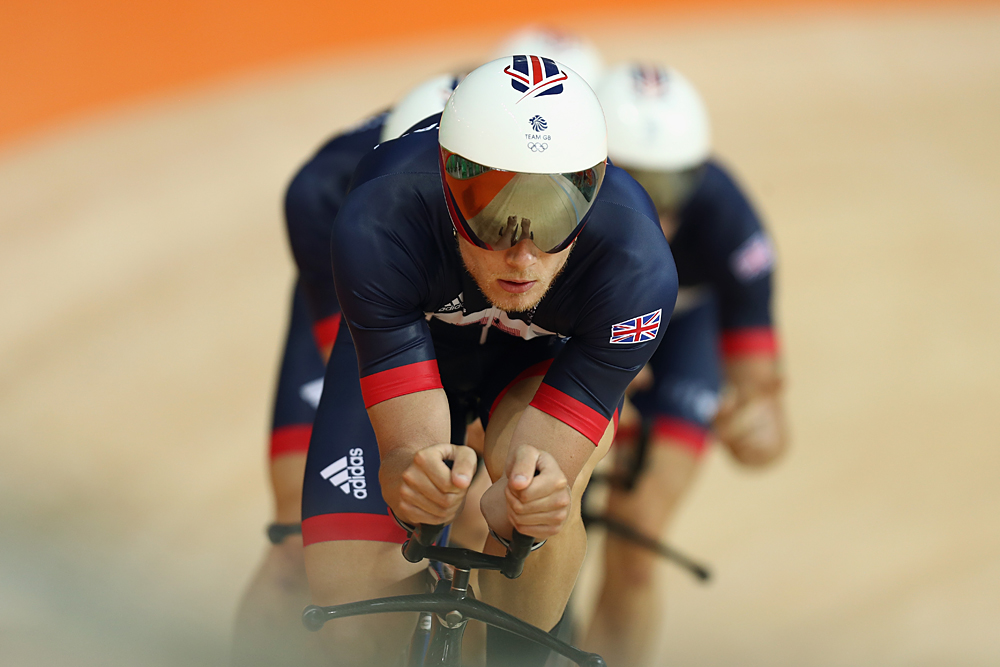
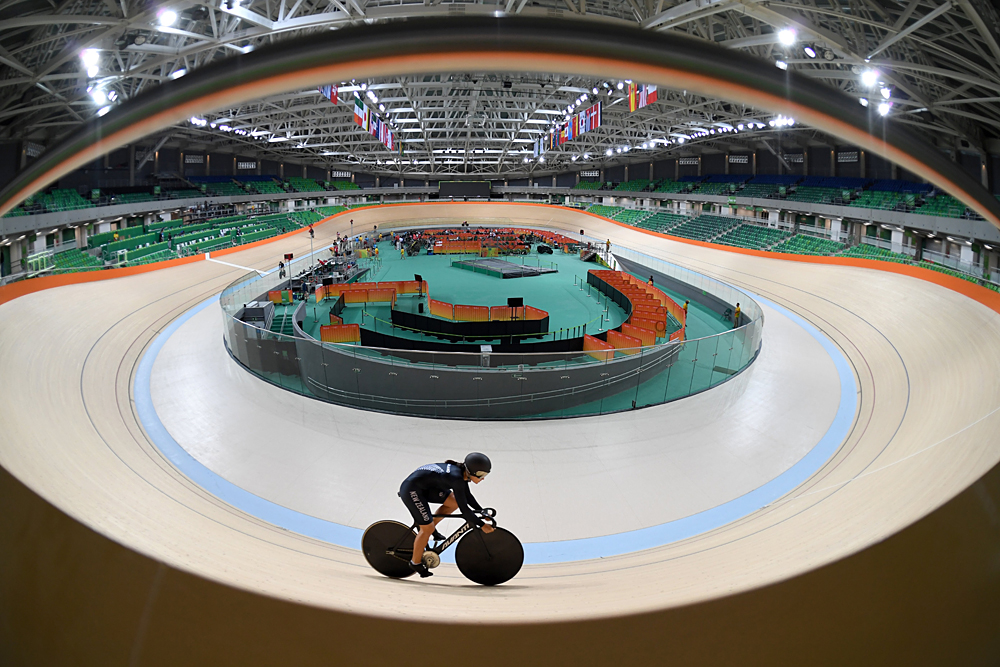
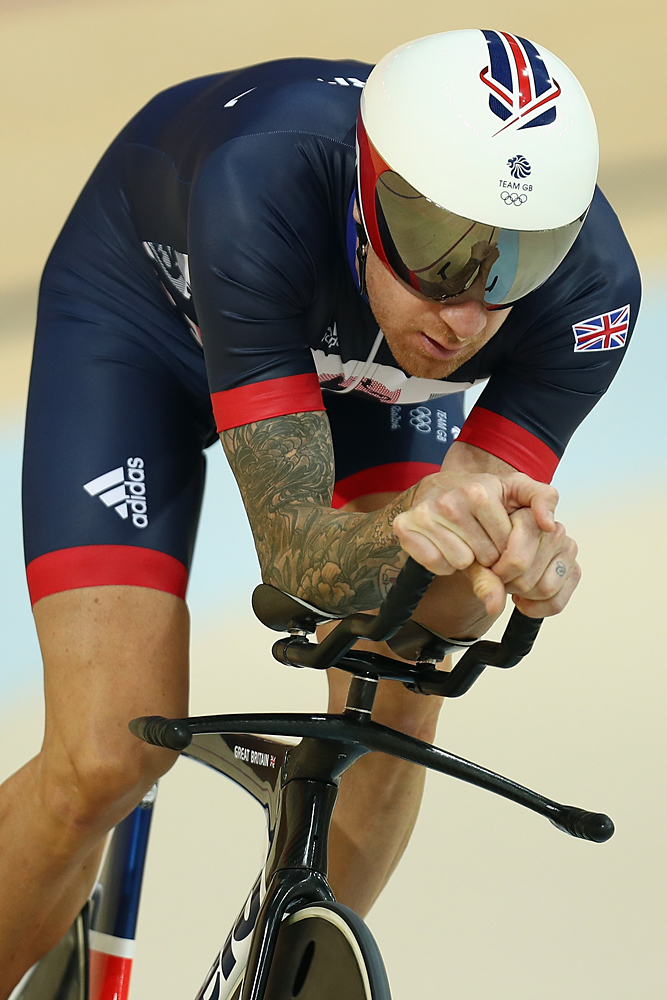
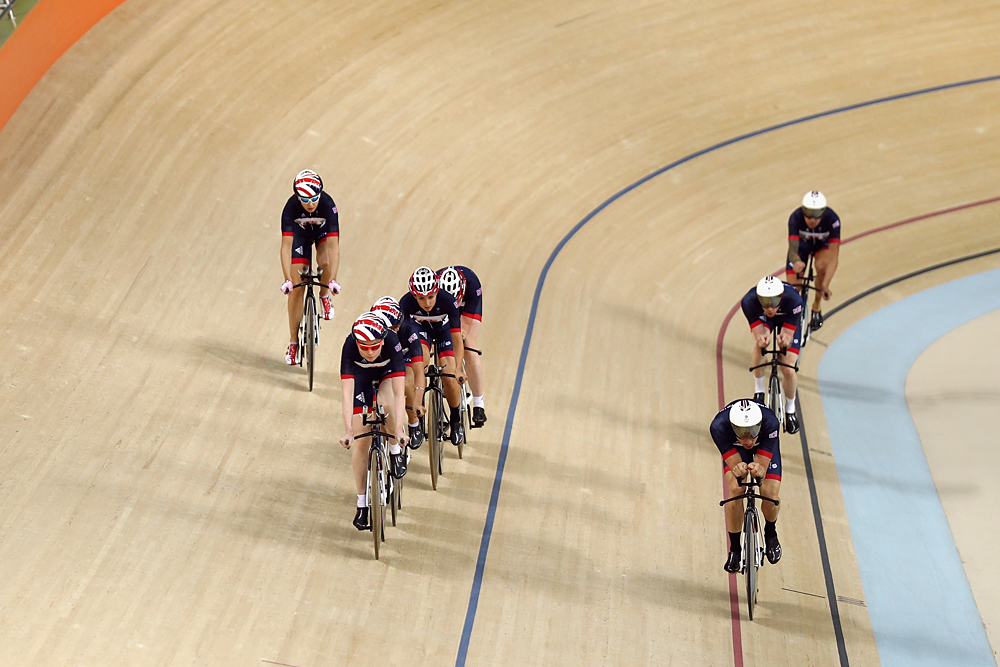
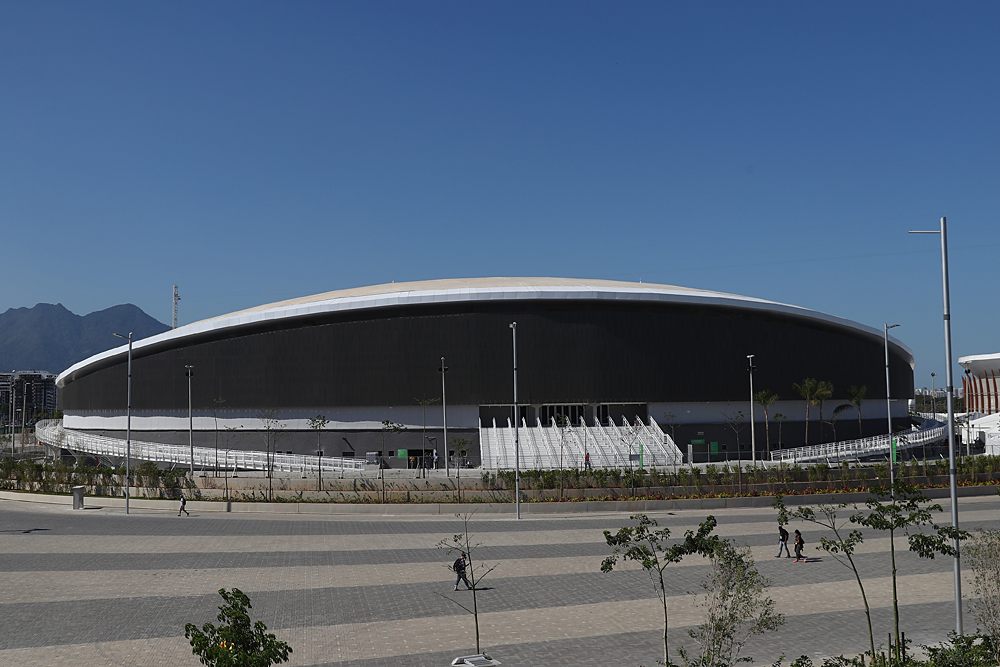
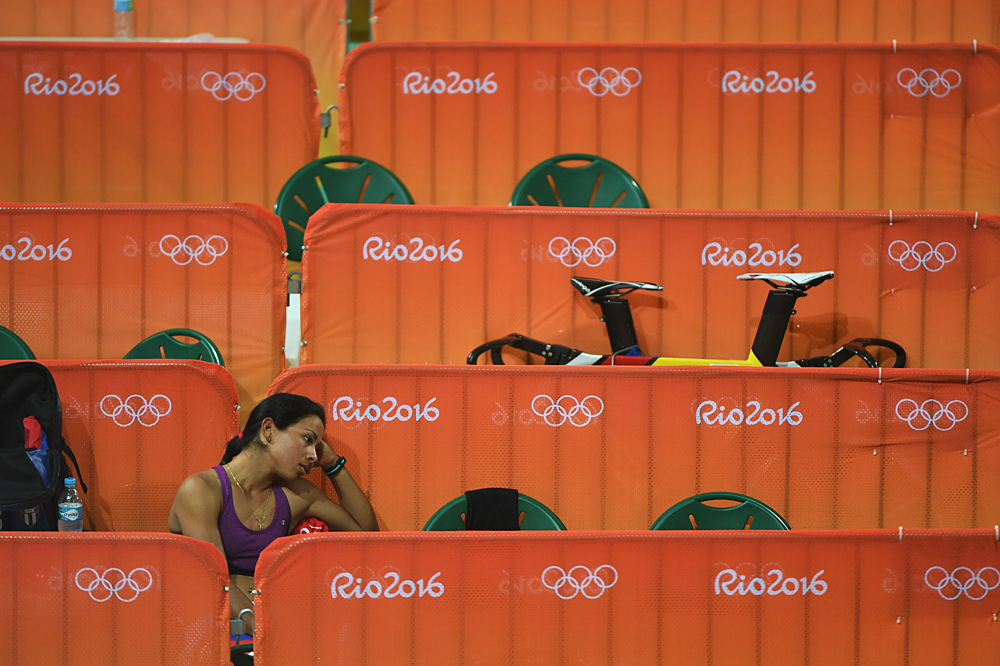
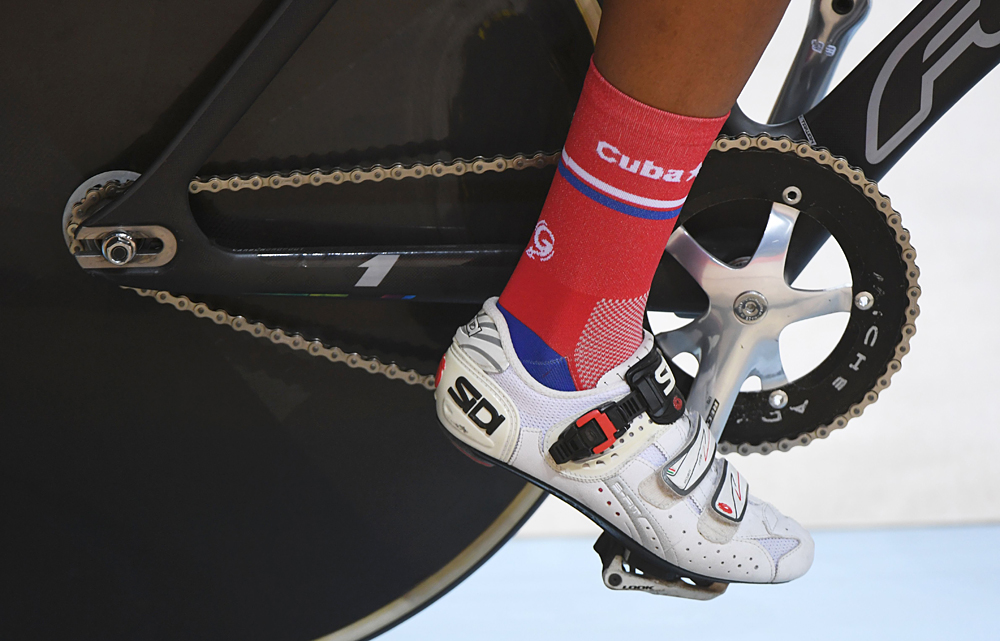
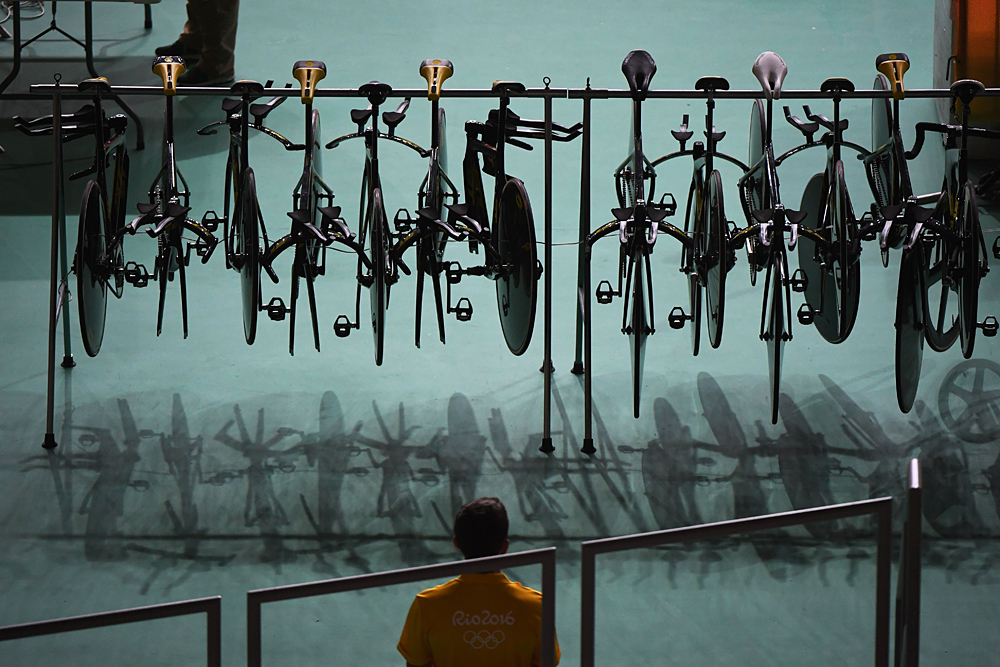
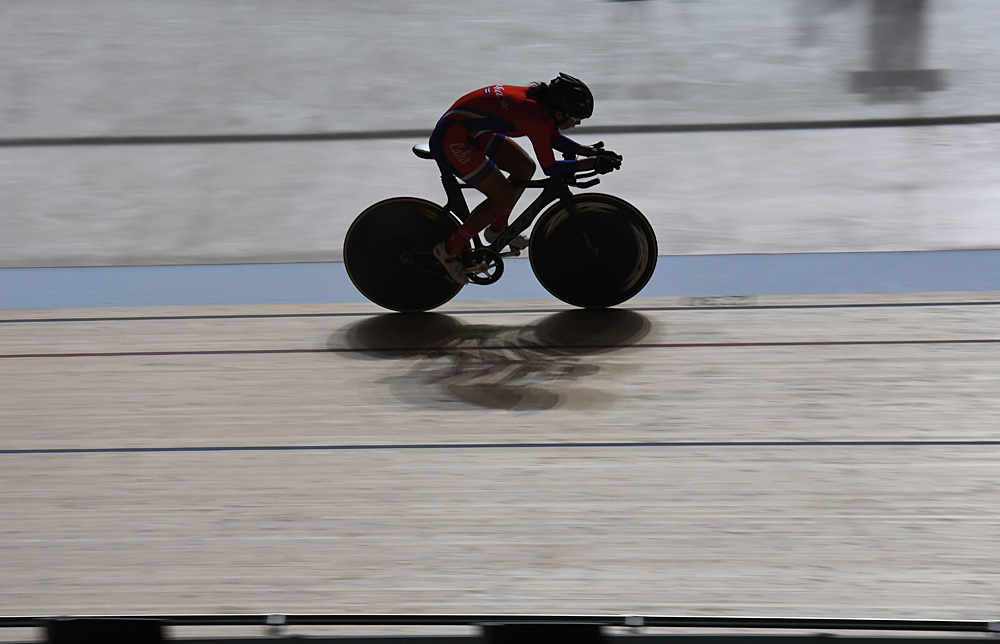
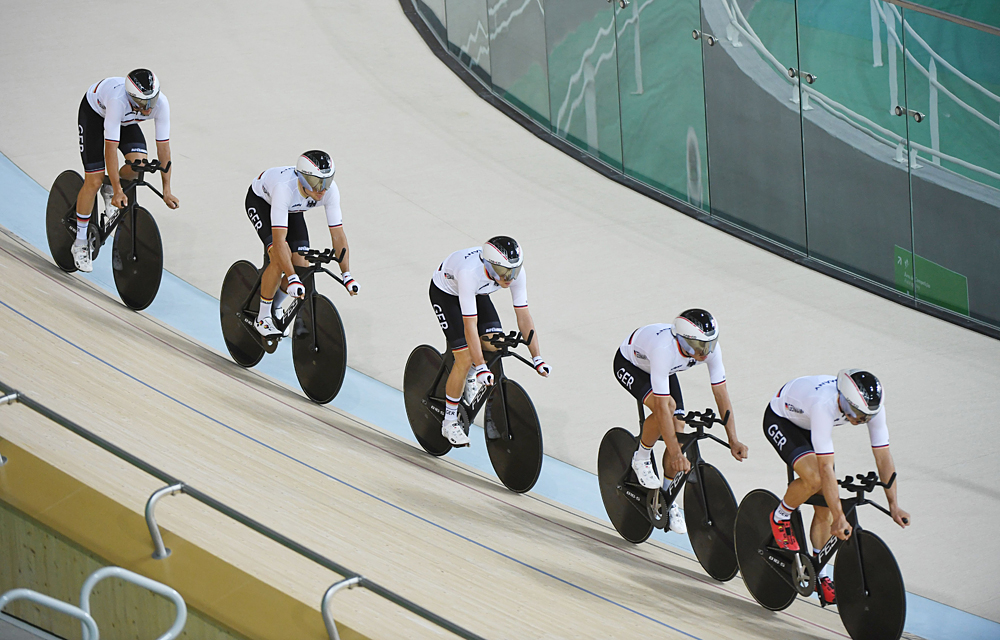
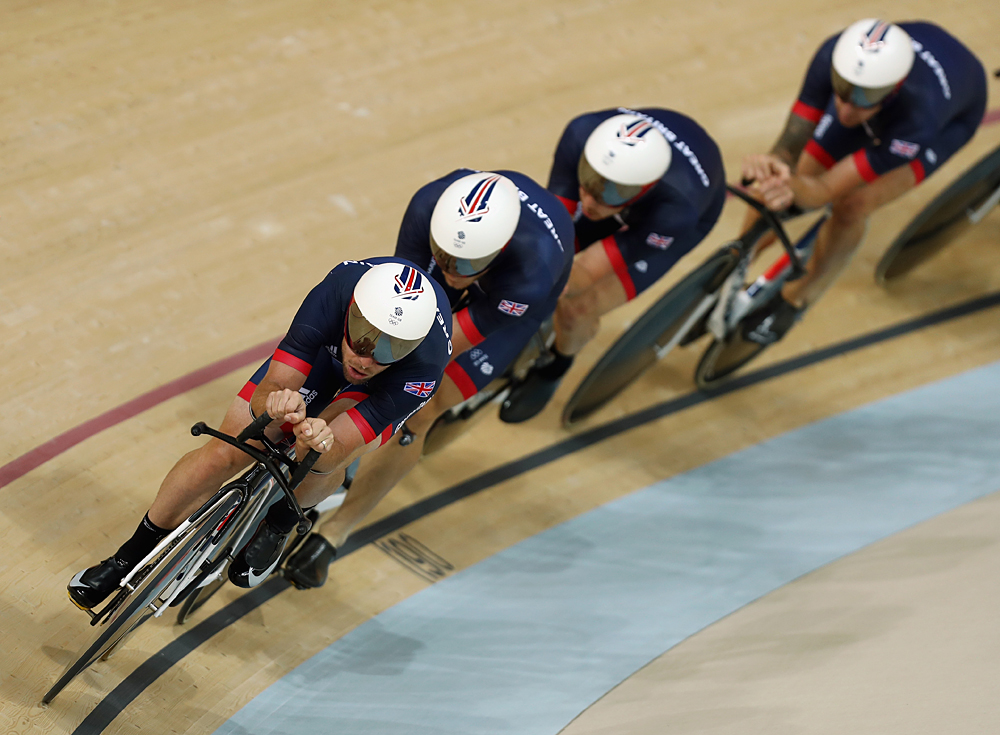
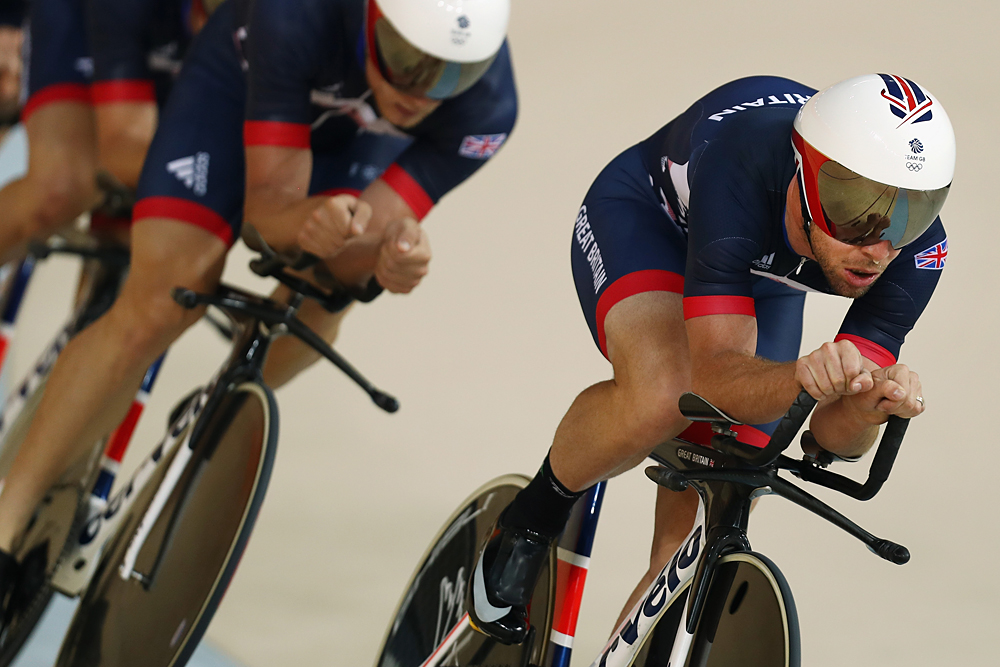
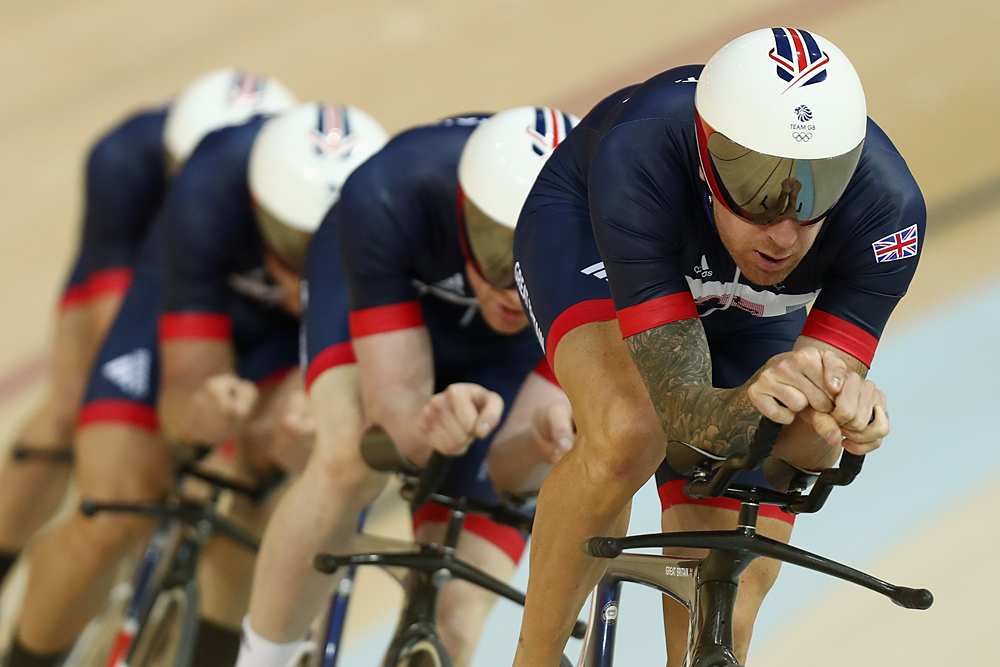
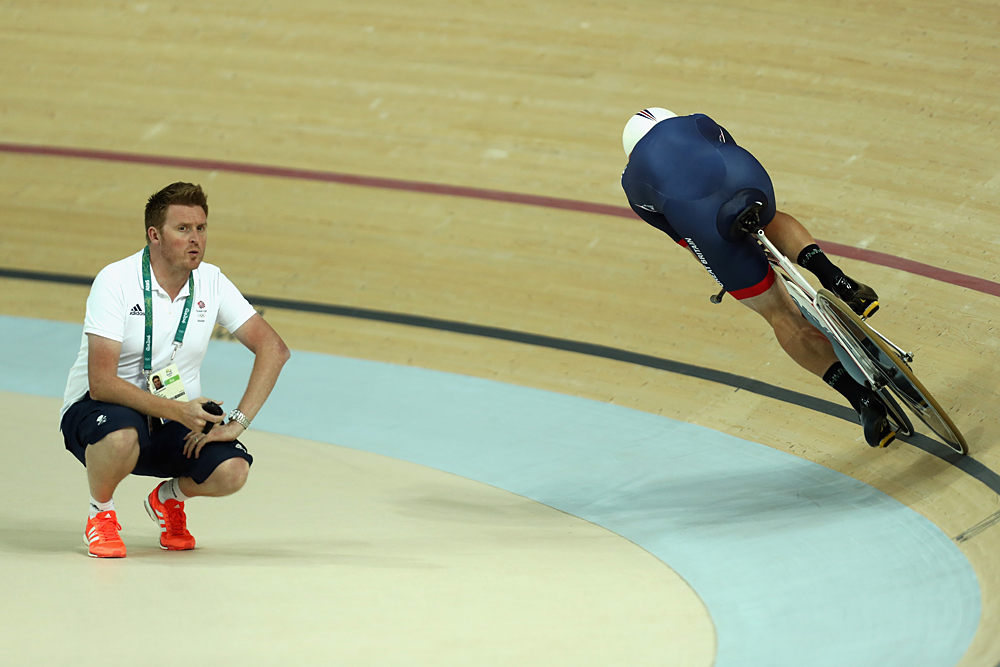
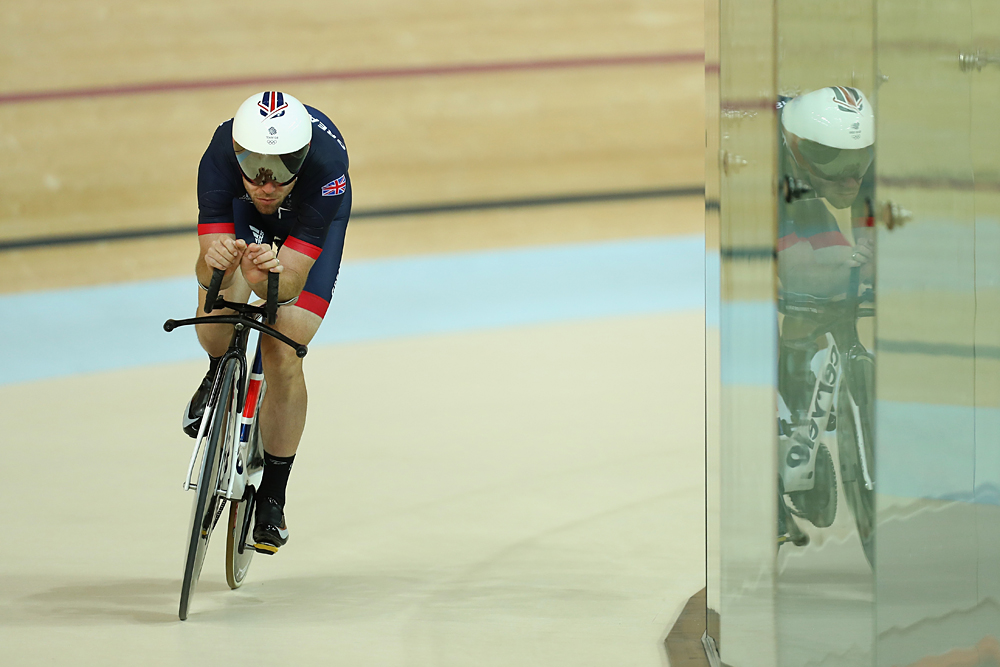
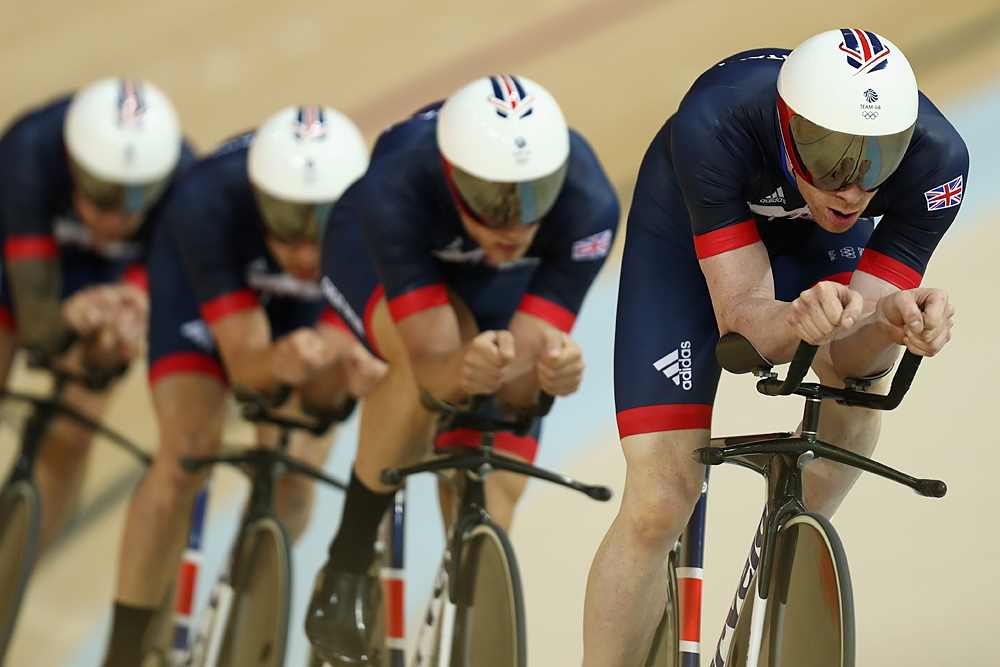
The newest venue in Rio, the velodrome, will host the Olympic Games track cycling events beginning on Thursday, with 10 gold medals up for grabs in five events each for the men and women. Cyclingnews brings you a guide to the events and the favourites. For a full schedule of the track cycling events, click here.
Men's Team Sprint
Some of the biggest quadriceps in cycling will be on display for the first medal event, the men's team sprint, on day 1 of the track cycling competition.
The team sprint is contested by three men over three laps. Each trio begins together at a stand-still, with one rider taking the team up to speed over a single lap and then pulling off. The second rider accelerates for one lap and then peels off, leaving one rider to sprint for the best time. The exchange of lead riders must take place in a specific zone on the lap, and any swapping outside of it - even by a millimetre - could lead to disqualification from the entire competition. The challenge of the team sprint is having a lead man strong enough to pull the team up to speed, but controlled enough not to drop the second and third men.
The competition takes place over three rounds, with the qualifying round selecting the best eight teams. Round two pits the fourth and fifth fastest against each other, while the third and sixth fastest, second and seventh quickest, and the fastest and slowest teams compete in four separate heats. The winners of each of those rounds advance to the finals, while the losers are placed according to their times.
It is crucial to put in a fast time in this round, as the top two teams will fight for gold and silver, while the third and fourth will battle for the bronze.
The Olympic record was set in 2012 in London, with Great Britain's Jason Kenny, Philip Hindes and Sir Chris Hoy winning the gold with a time of 42.6. However, the German team of Rene Enders, Robert Förstemann and Joachim Eilers own the world record from the 2013 World Cup in Mexico at 41.871.
But the Germans missed out on the gold medals at the World Championships in London this year, defeating France for bronze. It was the New Zealanders who took the title over a young Dutch trio. Expect to see these countries along with Great Britain and Australia in the fight for the medals.
Get The Leadout Newsletter
The latest race content, interviews, features, reviews and expert buying guides, direct to your inbox!
The men's team sprint rounds and finals take place on Thursday, August 11.
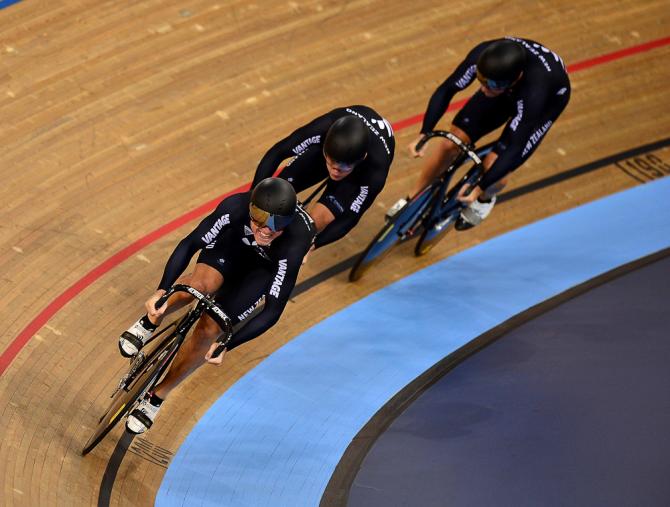
Women's Team Sprint
The women's team sprint competition takes place much the same as the men's, but with only two women competing over two laps. The event was introduced for women at the 2012 Olympic Games in London, and two teams ended up being disqualified because of the confusing exchange zone ruling. Great Britain was eliminated in the second round, while China, who set the World and Olympic record in both the opening and second rounds, were relegated in their gold medal final against Germany.
China is the overwhelming favourite for gold this time around, but they will need to get their transitions right. They were once again relegated in the gold medal final at the World Championships this year, putting Russia into the rainbow bands.
The Russians put in an impressive performance in London, but expect the Australians Anna Meares and Stephanie Morton, and 2012 Olympic gold medal winners Miriam Welte and Kristina Vogel (Germany) to put up a strong fight for the medals.
The women's team sprint rounds and finals take place on Friday, August 12.
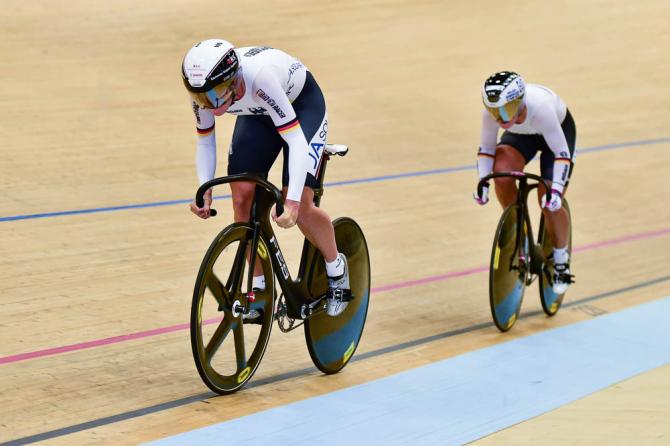
Men's Team Pursuit
Like the team sprints, the men's and women's team pursuits are contested over three rounds: qualifying, round one and finals. Both events take place over 4000m with four riders, but unlike the team sprint, the team pursuiters work together over the entire distance, swapping pulls each lap or half-lap. Stronger riders will pull into the wind for longer, sheltering the other riders. Teams try to keep all four together for as long as possible, but one rider can sell out and explode out the back - but only one. The time is taken on the wheel of the third rider.
Each nation can have five riders to use over the course of the three rounds to maximize their freshness for the finals.
The British hold the Olympic and world record, set in London in 2012, at 3:51.659. Bradley Wiggins will lead the British team this year in defence of the country's Olympic gold from their home Games. Together with a healthy Ed Clancy, Owain Doull, and Steven Burke, the quartet have been setting world records in training in Rio, and are the favourites for gold. It is unlikely that Mark Cavendish will take part in any of the rounds, however.
The Australians have been the only team to come close to that mark this season, and will be the closest competition for the British, with the Danish, and New Zealand squads likely vying for bronze. The Italian team missed qualifying for a spot thanks to the UCI's convoluted rules, but after the exclusion of the majority of the Russian team, they were given a last minute berth. Led by veteran Elia Viviani to fourth at Worlds this year, they are a dark horse candidate for the medals.
Women's Team Pursuit
The men have contested the team pursuit since 1908, but the discipline was only introduced for women in 2012 as part of a program for gender parity. However, in 2012 the women competed with three riders over 3000m. The distance was increased to match the men's at the start of the 2013-2014 season, and has seen a rapid evolution.
For the first time in history, the women will compete over the same distances as the men in the team pursuit, so not only is there Olympic gold on the line but the new record as well. Great Britain held the Olympic and World records after London, and set the first bar at 4:19 when the distance was increased, but have since been surpassed by the same combination of Australian women who will compete in Rio.
Annette Edmondson, Melissa Hoskins, Amy Cure, Ashlee Ankudinoff set a blistering 4:13.683 to win the World Championships in Saint-Quentin-en-Yvelines France in 2015. They suffered a set-back during training when all but one of their team came down in a crash with Hoskins paying a visit to hospital. Only the USA squad of Sarah Hammer, Kelly Catlin, Chloe Dygert and Jennifer Valente came close, going 4:14.806 in the qualifying rounds at the World Championships this year before winning the rainbow bands.
The British team have some catching up to do, and have controversially left off Dani King, who was part of the gold medal team in London, in favour of Elinor Barker, Joanna Rowsell, Laura Trott, Katie Archibald, and Ciara Horne.
The team pursuit qualifying rounds take place on August 11, with the men's round 1 and final on August 12. The women get an extra day of rest, contesting round 1 and finals on August 13.
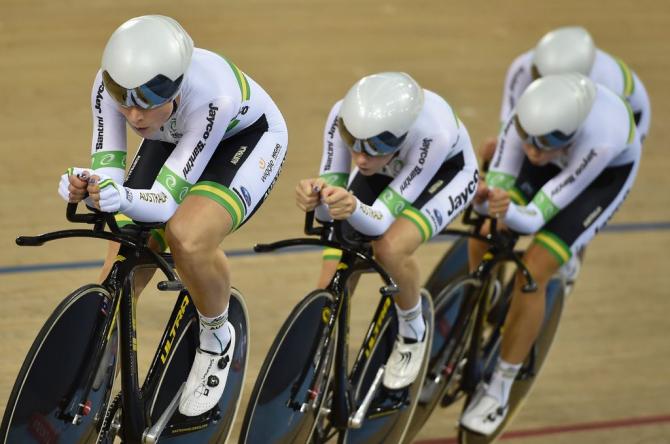
For more on this
- Australian women's team pursuit squad back on track after training accident
- Bradley Wiggins: Australia our biggest rivals for Olympic gold
- Olympic Games: Cavendish disappointed not to start team pursuit led by Wiggins
Sprint events
The individual sprint events take place over a total of four days, with the many rounds of the individual sprint filling up hours of competition. Both men and women qualify for the individual sprint with a flying 200m effort that seeds riders according to their speed. The fastest riders face off against the slowest in the 1/16 rounds, so it is important to go fast in the qualifying to make advancing easier. Only the top 18 riders advance to the next round of nine heats, but being beaten in the 1/16s is no reason to give up. There is a 'repechage' - where the losers compete in three-person sprints in a winner-take-all to advance.
12 riders compete in the 1/8 final, with the fastest riders going up against the riders coming out of the repechage. Once again, the six winners advance to the quarterfinal, with the six losers battling in another repechage. The quarterfinal rounds are do or die, however, as only the winners have a shot at the medals. The losers there compete for 5th-8th place. Winners in the semifinals fight for gold, while the two losers battle for bronze.
The keirin is contested over two rounds as a mass-start race with six riders in each heat. Only the first two riders of each heat advance automatically from the first round. The remaining riders must race a repechage round where only the winner advances. In round two, there are two heats of six riders, the top three of which advance to the gold medal final.
Men's sprint and keirin
Look for some of the same names to compete for the medals in the keirin and individual sprint. On the men's side, defending Olympic sprint champion Jason Kenny (Great Britain) showed he's back on form by winning the World Championship individual sprint. He will once again face his French rival Grégory Baugé, and a slew of up and coming sprinters such as German Joachim Eilers, who has dominated the keirin over the past year. Matthew Glaezer (Australia), Eddie Dawkins (New Zealand) and Jeffrey Hoogland (Netherlands), to name a few.
The finals for the men take place on Sunday, August 14, while the men's keirin rounds take place on Tuesday, August 16.
Women's sprint and keirin
The women's sprints have been dominated by the Chinese this season, with Zhong Tianshi taking over the top spot from London bronze medalist Guo Shuang. She won the world title this season over her teammate Junhong Lin, who did not even make the team.
Veteran Anna Meares, who claimed an emotional gold medal in London, is the only 2012 medalist in the field this year, although she has not shown her previous prowess in the sprints so far. But experience means a lot in the Olympics, so don't count her out. German Kristina Vogel, Becky James (Great Britain), Simona Krupeckaite (Lithuania) and Stephanie Morton (Australia) are other names to watch in the sprint and keirin.
The women's keirin medals will be decided on Saturday, August 13, while the women's individual sprint closes out track cycling on Tuesday, August 16.
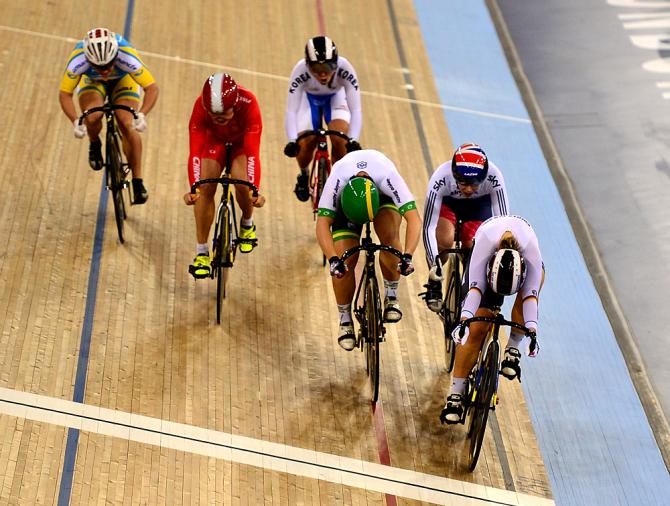
Omnium
The six-round Omnium complets the Olympic Games round up. Men and women compete in three timed events and three mass-start events, and the most consistent rider wins. Men and women race the Scratch Race, Individual Pursuit (4km for men, 3km for women), Elimination Race, Time Trial (1km for men, 500m for women), Flying lap, and Points Race in that order over two days of competition.
Since the 2012 Olympics, the UCI has tweaked the points structure to put more emphasis on the final event - the points race. Rather than compete for placings and aim for the lowest total, the riders now earn 40 points for winning each event, with points decreasing by twos until the last placed rider. The new structure puts more daylight between riders after five rounds, forcing them to fight hard for each of the sprints and the coveted 20 point bonus for lapping the field in the points race.
The defending men's champion Lasse Norman Hansen (Denmark) hasn't fared as well in the event since the restructure, though he won the World Cup round in New Zealand last December. Rather, the established points racers have taken over, and no rider has been as successful as Fernando Gaviria (Colombia) - twice World Champion. Mark Cavendish (Great Britain) has decided to focus on the discipline to win that elusive Olympic medal, but he faces an uphill battle against the likes of more experienced Omnium riders like Norman Hansen, Roger Kluge (Germany), Elia Vivani (Italy), and Glenn O'Shea (Australia).
The women's field continues to be dominated by the same two riders who fought neck and neck in London - Great Britain's Laura Trott, the gold medalist in 2012, and Sarah Hammer (USA), who claimed silver. A new name has popped into the mix, with French woman Laurie Berthon putting in powerful performances in the flying lap and 500m time trial to beat Hammer at the World Championships this year by one point.
Expect Edmondson, Canada's Alison Beveridge and Belgium's Jolien D'hoore and Kirsten Wild (Netherlands) to be in the fight for medals as well.
The men compete in the Omnium on Sunday and Monday, while the women race on Monday and Tuesday.
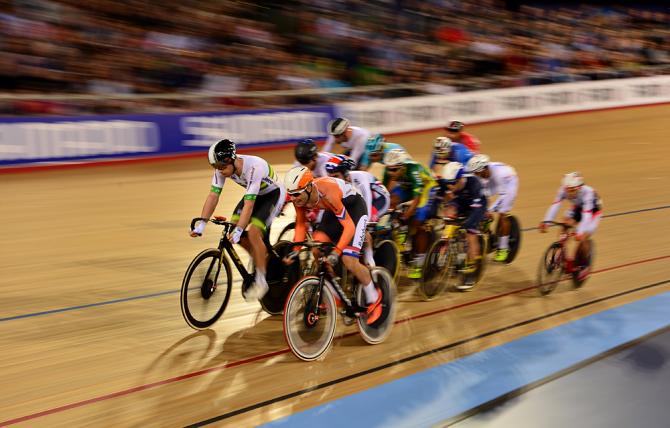

Laura Weislo has been with Cyclingnews since 2006 after making a switch from a career in science. As Managing Editor, she coordinates coverage for North American events and global news. As former elite-level road racer who dabbled in cyclo-cross and track, Laura has a passion for all three disciplines. When not working she likes to go camping and explore lesser traveled roads, paths and gravel tracks. Laura specialises in covering doping, anti-doping, UCI governance and performing data analysis.